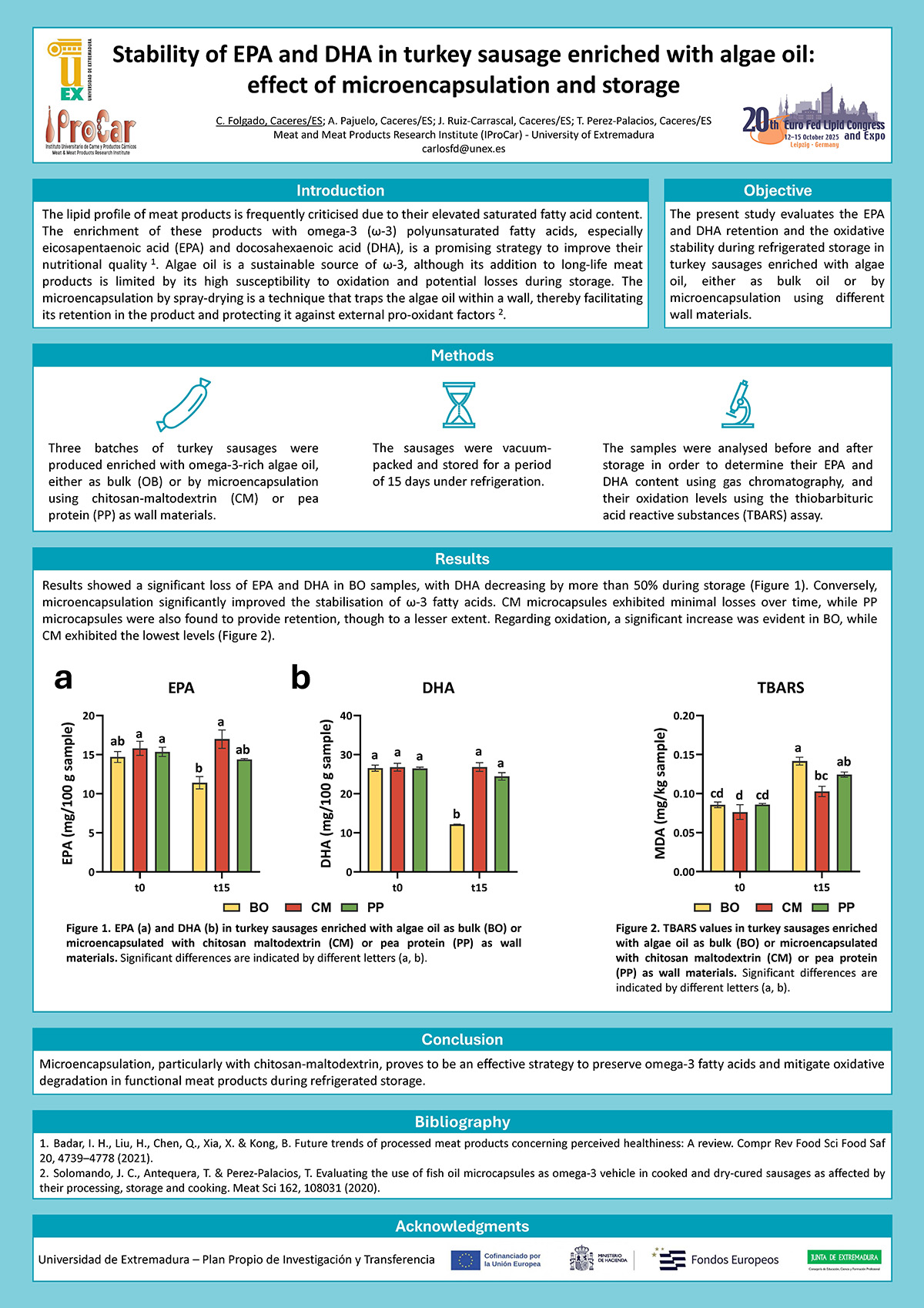The lipid profile of meat products is frequently criticised due to their elevated saturated fatty acid content. The enrichment of these products with omega-3 (ω-3) polyunsaturated fatty acids, especially eicosapentaenoic acid (EPA) and docosahexaenoic acid (DHA), is a promising strategy to improve their nutritional quality 1 . Algae oil is a sustainable source of ω-3, although its addition to long-life meat products is limited by its high susceptibility to oxidation and potential losses during storage. The microencapsulation by spray-drying is a technique that traps the algae oil within a wall, thereby facilitating its retention in the product and protecting it against external pro-oxidant factors 2 .
